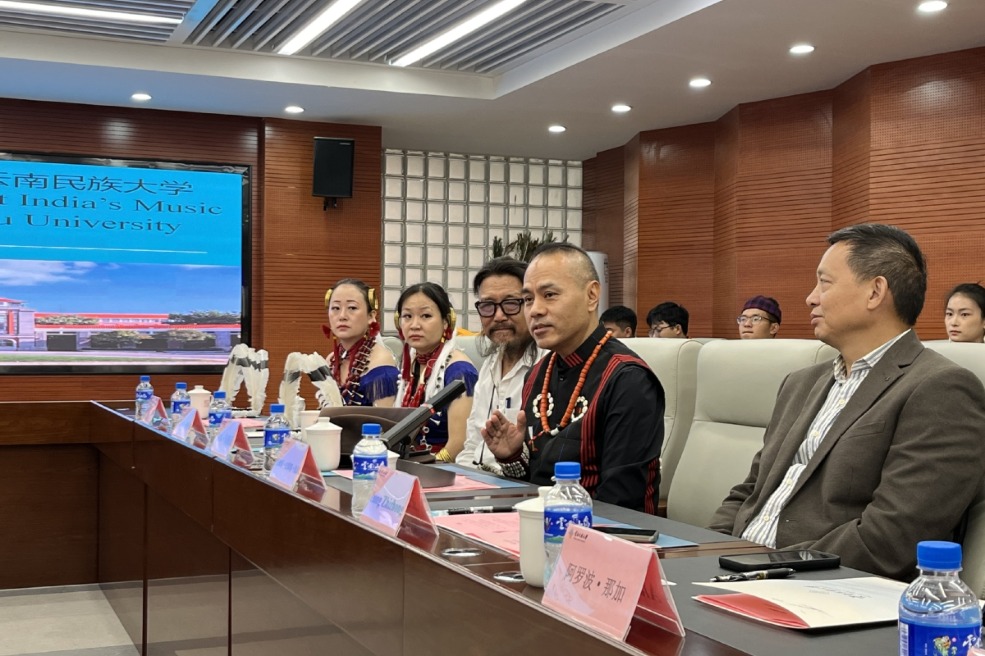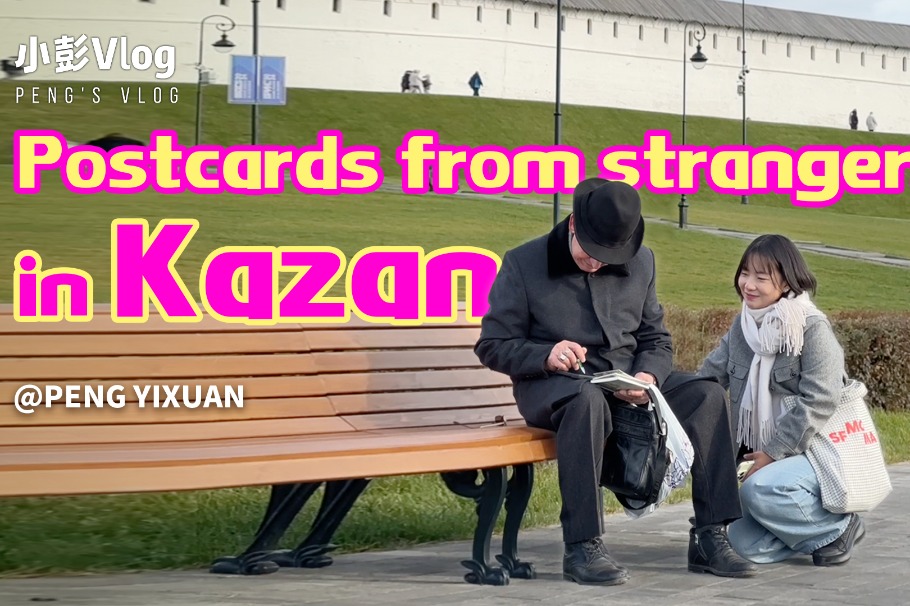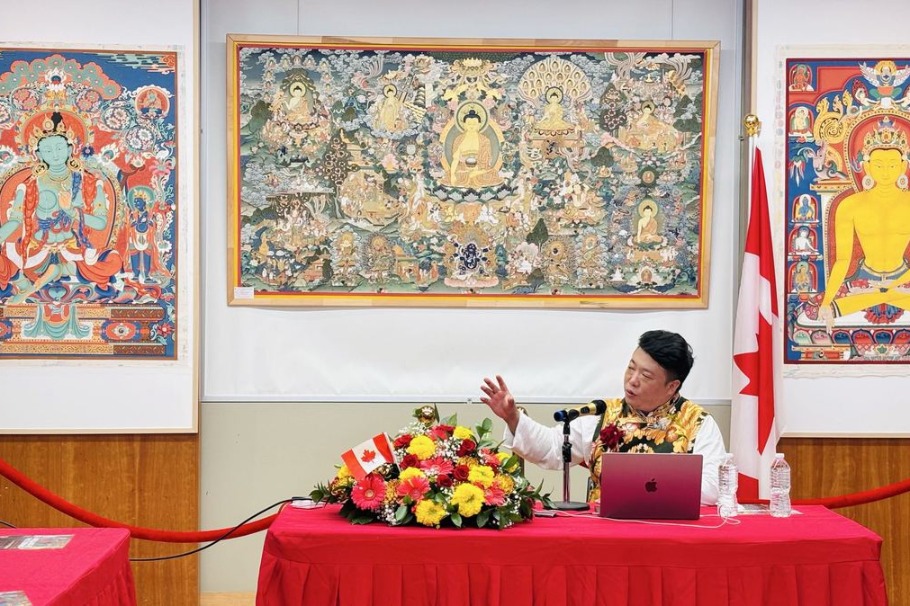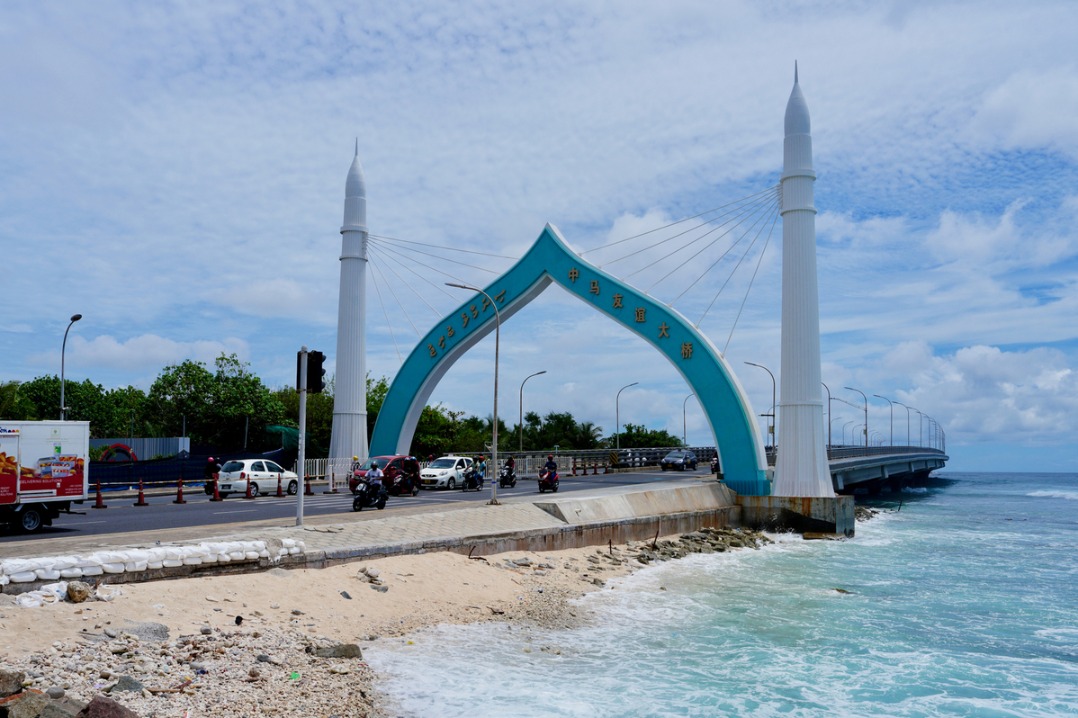International coalition launched

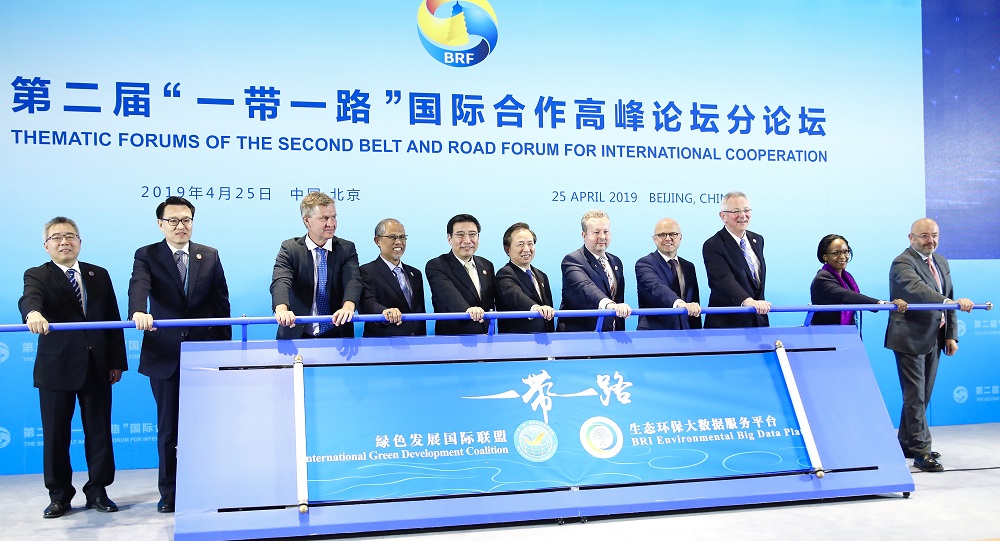
China's top environmental watchdog and its partners from home and abroad officially launched a green development coalition under the Belt and Road Initiative in Beijing on Thursday on the sidelines of the ongoing Second Belt and Road Forum for International Cooperation.
About half the roughly 120 institutions that joined the coalition are environmental authorities, international organizations, international institutes or companies in 25 foreign countries participating in the initiative, the Ministry of Ecology and Environment said.
The coalition was proposed by President Xi Jinping when he addressed the opening of the First Belt and Road Forum for International Cooperation in May 2017.
"I congratulate the government of the People's Republic of China and the members of the Belt and Road Initiative for this important effort. China has a lot to show in terms of lessons and experiences that offer insights to other countries," said Joyce Msuya, acting executive director of the United Nations Environment Programme, addressing the subforum on the Green Silk Road, where the coalition was launched.
"The UN Environment Programme, together with our UN partners, sees the potential in supporting countries benefiting from the Belt and Road Initiative to promote sustainable development, to provide support to build the capacity to safeguard nature and to ensure we have the very best of science and platforms and partnerships to make informed decisions," she said.
Li Ganjie, minister of ecology and environment, said the Belt and Road Initiative shares a common goal with the UN's 2030 Agenda for Sustainable Development and called for building a green Belt and Road under the principle of "co-construction and sharing".
"We should build consensus and offer countries and regions participating in the BRI more green public products through the construction of a green initiative, while effectively promoting the implementation of the 2030 Agenda for Sustainable Development," Li said.
The Belt and Road Initiative Big Data Platform was also launched at the forum.
With five subplatforms, including the Shanghai Cooperation Organization Environmental Information Sharing Platform and the Green Supply Chain Platform, the new platform will provide environmental data support for countries involved in the BRI, including ecological environmental protection concepts, laws, regulations, standards, environmental policies, management measures, technical exchanges and industry cooperation.
Arthur Hanson, former president of the International Institute for Sustainable Development in Canada, applauded the establishment of the coalition.
"It brings together a lot of interesting partners. It's very important for China to have those kinds of partnerships because what we need to see for the Belt and Road to be truly successful has to involve interaction among the countries of the BRI," Hanson said.
Though the BRI is an infrastructure-based activity right now, many people in participating countries are expecting to see in the next phase "both the soft side and the hard infrastructure side", which Hanson said he has found in his visits to some of the countries. This makes the coalition important, he said.
Hanson, who is also a chief international adviser to the China Council for International Cooperation on Environment and Development, said he expects the coalition to play a role in promoting idea sharing. The council is a high-level international advisory body composed of officials and experts from home and abroad who provide policy advice to the Chinese government.
"It is really important that China recognize just how significant its own experience in green development is going to be to other places," he said.

















